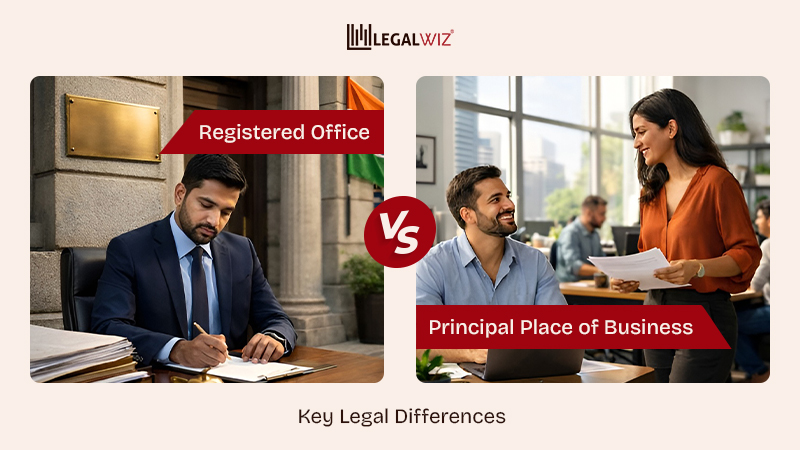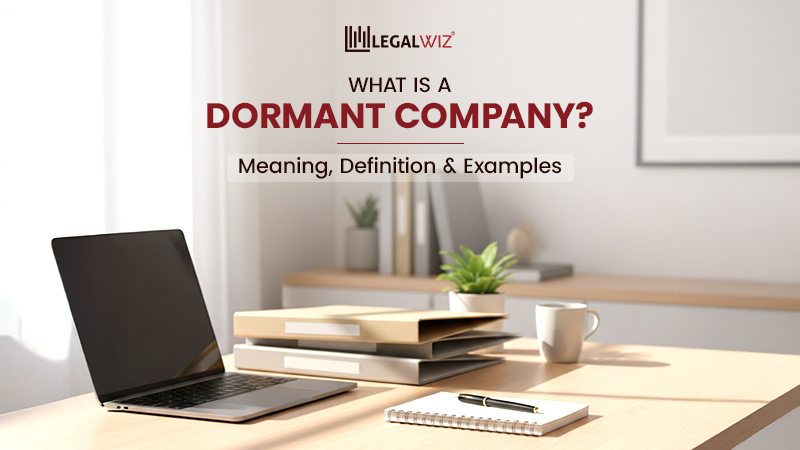MOA- Understanding the importance of Memorandum of Association
Running a successful business is no less of a sport than running a marathon. Before starting your operations as a business owner, you need to go through with the company incorporation. Once your company is incorporated, only then can you start your business activities. However, all companies undergo an extensive registration process that requires a lot of documents and details. One of the most important documents required to incorporate a company in India is an MOA. So, in this blog, we cover all aspects of what it is, the importance of memorandum of association in company law, and the objectives of the MOA.
What is MOA?
The memorandum of association or MOA, commonly referred to as a memorandum, is a charter document of a company. It illustrates the objective, scope and powers of any company. It is the most important document for any company. Every company is bound to carry out activities in pursuance of the objective specified in the MOA. Any action taken by a company that is beyond its MOA is considered void and ultra vires (beyond given powers). Having an MOA is a legal requirement for every company; without it, no company can be incorporated.
Also Read: What is a Private Limited Company?
Purpose of an MOA
The MOA is a public legal document available for the general population to access; any person that gets into a contract with a company or collaborates with a company is expected to go through and be familiar with the company’s MOA.
- It lets shareholders and potential investors know about the purpose and operations of a company;
- It lets the company’s employees, collaborators, Vendors etc. know the objectives of the company as well as the field of operations of the company;
- It protects the company as it ensures that funds of the company can only be used for specific purposes; and
- The charter of a company has the power to govern its scope of functioning. The MOA can hence also limit the activities of a business.
Importance of memorandum of association (MOA) in company law
The need for an MOA in a company cannot be understated. Without the submission of the Memorandum, a company will not be constituted. Apart from this, there are many other reasons that make the MOA more important for a company. Let’s take a look at some of those reasons:
Legal requirement
Submission of an MOA is a key part of the company registration process. Reason being, the fact that MOA is the charter document that governs all the necessary aspects of a company in India. Hence, this basic legal requirement shows the importance of memorandum of association.
Scope of company
All companies registered in India need to have a defined scope. Any activities carried out of this scope are allegedly illegal. Hence, the importance of memoradum of association is that it gives the company its rights to conduct certain business activities.
Company and shareholder powers
Another importance of MOA in company law is that it gives the company and its shareholders their share of the powers. The MOA defines all the roles and responsibilities in detail.
Legally binding
All the shareholders of the company need to sign the MOA before they submit it to the MCA portal. This makes it a legally binding document and hence, protects the rights of all signatories.
Important clauses of an MOA
There are a few mandatory clauses that every Memorandum of Association has to have:
Name clause
The name clause in MOA states the name of the company. Public companies have to end their company name with the word ‘limited’, whereas private limited companies are required to end their name with the words Private Limited. (This does not apply to companies formed under section 8 of the Companies Act).
Registered office/Domicile clause
This clause specifies the location in which the company carries out its activities. Under this clause, one only has to specify the state of the company, not its full address. Hence, it increases the importance of memorandum of association in company law.
Object clause
This clause is at the heart of what makes the memorandum of association so relevant. Hence, the object clause of Memorandum of Association specifies the objectives of the company and the other incidental objectives that the company can indulge in. Activities done beyond the scope of these objectives will be considered void.
Liability clause
This clause elaborates the liability of the members of the companies. Under the Liability clause, the company has to specify if the liability of the members of this company is limited by shares, by guarantee, or more.
- Limited by shares: In this situation, the liability of the members of the company will be restricted to the number of shares that have been purchased by them.
- Limited by guarantee: In this case, every person guarantees a certain amount that they will pay in case the company faces any losses and has to wind up.
- Unlimited liability: In case of unlimited liability, in case the company faces any losses, every member of the company is liable unlimitedly; in other words, they can be liable to pay for an amount as large as it may be, and this liability extends to the extent of their personal property.
Capital clause
The Capital clause specifies the maximum capital that the company can raise; it’s also the authorized/nominal capital of a company. This clause also elaborates on the division of capital into shares of specific amounts.
Subscription clause and its importance in MOA
This clause specifies the details of subscribers and the shares that they’ve subscribed to. In case of a private company there should be the details and the signatures of 2 subscribers whereas in case of a public company there should be the details and signature of 7 members of the company.
What are the objectives of memorandum of association?
The main objective of memorandum of association is to govern and limit the scope of business in a company. To facilitate this, MOA and Articles of Association both serve various objectives. The primary objectives of memorandum of association include:
Company formation
The main objective is to facilitate company formation. Moreover, it is also the first official document of the company and has the company name, its object, and its capital. Hence, another importance of Memorandum of association is that it facilitates company registration.
Member liabilities
The liability clause of the MOA is also important as it serves the objective for defining and limiting the liabilities of all its members, based on the type of company based on liability you’ve chosen.
First contract
The most important fact about MOA in company law is that it serves as the first legal contract between a company and its members.
The importance of MOA alteration
Certain situations may arise where the company owners may feel the need to change the scope of their business. To facilitate growth in such cases, the company laws of India provide for a very important provision with respect to MOAs. It allows you to apply for the alteration in Memorandum of Association. You can check out the process of how to alter the MOA here. This provision that allows allterations to charter agreements, also emphasies the importance of memorandum of association (MOA).
Conclusion
While incorporating any company, you need to file the MOA with registrar of companies. In recent times the MCA(Ministry of Corporate Affairs) has introduced SPICe MOA/eMOA. It is an electronic form that lets you file your Memorandum of Association online via the MCA website. It has made the process of creating and filing an MOA a lot easier.
Frequently Asked Questions
Is the MOA and the AOA of a company the same?
No, the MOA and AOA of a company are two different documents that together form the constitution of a company. The MOA specifies the objectives and details of a company, whereas the AOA specifies the internal rules and regulations of a company. Of the two, the MOA is considered the most important document and is a lot more difficult to alter.
What is the main purpose of MOA?
The main purpose of an MOA is to illustrate the objectives of a company and the scope of its activities and powers. Any actions taken by a company that is beyond what’s specified in its MOA are void.
Does an LLP (Limited Liability Partnership) require an MOA?
No, LLPs don’t need an MOA; MOA is only mandatory for companies. However, instead of an MOA, every limited liability partnership requires an LLP deed to be executed that specifies the scope and powers of the partnership.
Do all companies need an MOA?
An MOA is a public legal document that every company has to mandatorily have. Without it, no company can be incorporated.

Monjima Ghosh
Monjima is a lawyer and a professional content writer at LegalWiz.in. She has a keen interest in Legal technology & Legal design, and believes that content makes the world go round.







